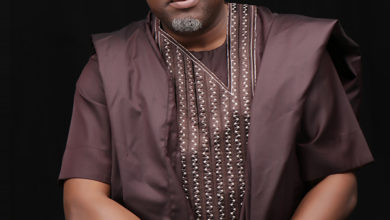
NIGERIA’S POPULATION IS A LOT LESS THAN 220 MILLION
By: Dr. Tope Fasua
- So, why do we claim 220 million? Is it because, like they say about Texans, Nigerians like big things? Could we somehow get a more reasonable number with the coming census? Is it possible for Nigeria to wake up one day and tell the world ‘sorry, we have been getting our stats wrong and our population is 120 million’?
I remember that day in 2011 when world population was said to have hit 7 billion. I was passing the lobby of the Transcorp Hilton Hotel and the TV at the reception was on BBC Channel. I paused to listen to the momentous news before moving on to the nearby bank. The BBC reporter was in Accra’s Agbogbloshie market, and the camera would zoom in and out on black pregnant women as the reporter ran commentary about how the world population had exploded and all the dangers that came with that. I found it very distasteful that they would choose to locate their news coverage in Africa and then focus on pregnant black women. The general gist that the BBC was silently passing across to the world was that black people were the ones populating the world indiscriminately.
Nigeria is the biggest culprit in Africa, and these days, we put our population at around 220 million. Nigeria’s population growth rate is put at around 2.6% – 3%, and the other day some global body put out the statistics that Nigeria’s population will hit 500 million by the year 2050. The general idea out there is that all we do is procreate in this country, and we have not put out any counter-narrative to this effect. We sort of just assume that ‘up north’ they are having so many children. But chances are that our women are a lot more educated today and are having fewer children per head, and the economic situation is also preventing so many men from having so many, north or south. The overall figure that we declare is certainly contaminated with our politics of prebendalism and patronage, whereby politicians find ways to inflate the population of their constituencies because that also enables them to collect larger allocations from the federal government, among other undue advantages. We certainly aren’t given to a high level of veracity in our public accounting…at least not yet. There is therefore a reason to look at these figures more intently.
This is more so as Nigeria is supposed to have another census this coming May. We had the last one in 2006, and it was rather inconclusive. I recall the controversy in 2013 when the then Chairman of the National Population Commission, Dr Festus Odimegwu was asked to resign for making some derogatory comments around our census figures.
But we have to take a dispassionate of these issues if we are to make some progress as a nation. In research and statistics, it is usually advised not to obtain data for a singular source, but that your research would be stronger and more credible if you are able to triangulate your data. This means that you should strive to compare data across at least three sources. When we compare the number that we claim as our population with some other sources, it just doesn’t add up.
My concern today is our election numbers. I have discussed this with a number of people but the explanation they give does not convince me. Let’s look at this very scary phenomenon. In 1993, the total number of voters in the general (presidential election), was 25.4 million. In 1999 the number rose to 30 million. Good. In 2003, the number further rose to a whooping 42 million. But since them something different has been happening. We saw a reduction to 35 million in 2007, then it rose to 39 million in 2011. In 2015, the total votes were a total of 29 million. While in 2019, the numbers fell to 27 million. Surprisingly, in the year 2023, with so much information dissemination, awareness and youth participation, when there was indeed a surge in new registrations (9.5 million), and the electoral commission (INEC) had 93 million people on the register, we couldn’t manage more than 25.2 million votes. This number is less than what we had in 1993, 30 years ago.
As the elections are being rounded up, some people have complained about rigging and I wonder how. When these folks see the numbers, they talk about voter suppression. I write this as the governorship and state assembly elections are being conducted and I could see from all reports that there was far less enthusiasm around these sets of elections than the presidential one. I doubt if we will find 15 million in this election. My experience with the presidential elections was that a lot more people came out. In my polling unit in Abuja, the numbers were much, despite the unit having been split into four. I believe that riggers are more interested in having large votes than managing to scrape a win. But we should note that the drop in the number of voters have been almost consistent since after the 2003 elections, so it’s not a new phenomenon. I will want to put that in the ambit of technology, which appears to be catching out our lies. It is however true, from what we have seen as evidence so far, that our politicians and their supporters added to their election numbers where they could get away with it. This means that even the 25.2 million number has an element of vote inflation. If we backed that out, will we be talking of about 18 million votes or less? And given the youth enthusiasm and the turnout in my polling unit, I don’t want to buy that idea that there was apathy. If despite all the issues that should draw them out, 80-90% of eligible voters in Nigeria just plainly refuse to come out to vote, then we are as good as not having them as citizens. I just don’t buy it.
With a population of 220 million people, perhaps we should have about 150 million eligible to vote in the first place. How does this get prised down tom 93 million, and then 25.2 million on election day – a figure lower than what we had 30 years ago? The key factor that has changed over time, is the efficiency of technology. We struggle so hard not to comply but it gets us all in the end.
Then to complete the triangle we could look at bank records. Nigeria has 54 million bank verification numbers, which are supposed to be unique, though I understand some Nigerians found ways to obtain multiple BVNs. Our National Identification Number (NIN) – another unique number – has about 90 million registrations. This NIN number, mind you, is for everybody, from a child born today. So, that number approximates Nigeria’s population give or take another 20-30% of people who simply refuse to register. The gap between the NIN and BVN could be put down to those who refuse to open accounts.
So, why do we claim 220 million? Is it because, like they say about Texans, Nigerians like big things? Could we somehow get a more reasonable number with the coming census? Is it possible for Nigeria to wake up one day and tell the world ‘sorry, we have been getting our stats wrong and our population is 120 million’? I think if we could present with a more accurate figure, we shall have a lot to gain. First, we should be taken out of the inglorious list of countries populating the world. We would also get reclassified off the list of some of the poorest people on earth as everything per capita suddenly shoots up. That could earn us some respect. The numbers of Nigerians in multidimensional poverty will also get reclassified and we should get some positive vibes going on among out people, rather than this pervading – even if attractive – pull to despair. We may have boxed our minds into a dark corner with our false numbers over the years.



